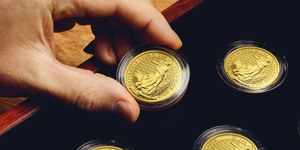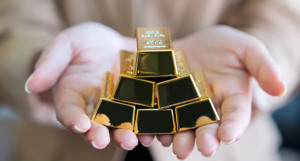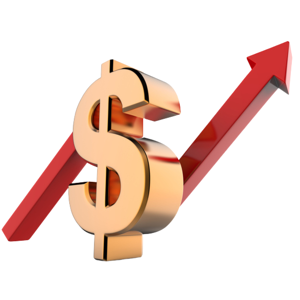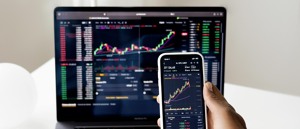Tavex uses cookies to ensure website functionality and improve your user experience. Collecting data from cookies helps us provide the best experience for you, keeps your account secure and allows us to personalise advert content. You can find out more in our cookie policy.
Please select what cookies you allow us to use
Cookies are small files of letters and digits downloaded and saved on your computer or another device (for instance, a mobile phone, a tablet) and saved in your browser while you visit a website. They can be used to track the pages you visit on the website, save the information you enter or remember your preferences such as language settings as long as you’re browsing the website.
| Cookie name | Cookie description | Cookie duration |
|---|---|---|
| tavex_cookie_consent | Stores cookie consent options selected | 60 weeks |
| tavex_customer | Tavex customer ID | 30 days |
| wp-wpml_current_language | Stores selected language | 1 day |
| AWSALB | AWS ALB sticky session cookie | 6 days |
| AWSALBCORS | AWS ALB sticky session cookie | 6 days |
| NO_CACHE | Used to disable page caching | 1 day |
| PHPSESSID | Identifier for PHP session | Session |
| latest_news | Helps to keep notifications relevant by storing the latest news shown | 29 days |
| latest_news_flash | Helps to keep notifications relevant by storing the latest news shown | 29 days |
| tavex_recently_viewed_products | List of recently viewed products | 1 day |
| tavex_compare_amount | Number of items in product comparison view | 1 day |
| Cookie name | Cookie description | Cookie duration |
|---|---|---|
| chart-widget-tab-*-*-* | Remembers last chart options (i.e currency, time period, etc) | 29 days |
| archive_layout | Stores selected product layout on category pages | 1 day |
| Cookie name | Cookie description | Cookie duration |
|---|---|---|
| cartstack.com-* | Used for tracking abandoned shopping carts | 1 year |
| _omappvp | Used by OptinMonster for determining new vs. returning visitors. Expires in 11 years | 11 years |
| _omappvs | Used by OptinMonster for determining when a new visitor becomes a returning visitor | Session |
| om* | Used by OptinMonster to track interactions with campaigns | Persistent |
| Cookie name | Cookie description | Cookie duration |
|---|---|---|
| _ga | Used to distinguish users | 2 years |
| _gid | Used to distinguish users | 24 hours |
| _ga_* | Used to persist session state | 2 years |
| _gac_* | Contains campaign related information | 90 days |
| _gat_gtag_* | Used to throttle request rate | 1 minute |
| _fbc | Facebook advertisement cookie | 2 years |
| _fbp | Facebook cookie for distinguishing unique users | 2 years |
What Are Assets? Types, Examples, and Tips

Most investors’ portfolios consist of ‘financial’ or ‘real assets’ (the differences will be explained below). The idea of each asset is to bring financial benefits in a certain future period. But the question still remains, what exactly is an asset?
In this article, we’ll look at examples of assets, how we can categorise them, and provide some advice to help you decide how to allocate your funds.
What is An Asset?

An asset, at its core, is any resource or item that holds value and can provide future economic benefits
Whether it’s a physical object like real estate or a financial instrument like stocks, assets play a fundamental role in personal finance, business operations, and investment strategies. Understanding what constitutes an asset is crucial for making informed decisions that can lead to financial growth and security.
When we talk about assets, we think of an investment that brings us a profit. In other words, we allocate funds in such a way that they will bring us financial benefits in the future.
In order for someone to invest, he/she must first have the financial means to do so. This can be done in two ways – either by saving the money he earns or by borrowing that money.
When he borrows, he/she must be very sure that for the period of the loan, his/her return on the asset covers the interest cost of the loan.
In accounting terms, assets are those goods – equipment, plant, or buildings – that you no longer need to spend money on, or those services from which you receive funds.
For example, let’s say you have a business. You deliver a certain amount of goods to your business partner and agree that payment must be made within one month. Until this payment is made, the amount due is an asset to your business and a liability to your business partner .
Once the deal is settled, you no longer have that amount as an asset because it is now part of your business’s cash balance.
How Can We Characterise an Asset?

When it comes to characterising an asset, we can use several criteria to classify each asset. From this point on, we make it clear that we will only be talking about some of the more well know asset types.
Characterising assets can be split into the following three criteria:
- Investment period;
- The physical nature of the asset;
- The purpose of the asset.
As mentioned above, we can use several ways to classify assets, and these not only cover the most common assets, but also give a great start to those who want to start investing.
1. Asset Holding Period
Timing is everything in investing. It is said that you should not try to predict the potential future price of an asset, but look at the current one.
What is meant here is that it is good to take a step back and change the way we should look at when we invest in an asset. An example of this is the company Nvidia. Their share price has been moving higher and higher since the beginning of 2023. So there is a question of: Would you buy Nvidia today?
An initial answer may be no. To expand on this idea when you think the price of an asset is going up, you should also consider that the price you’re going to sell at will be someone else’s buying price. That someone else will buy what you have just because they think they will sell for an even higher price than you.
Generally, in terms of time, assets can be classified as short term (investment term of one year), medium term (investment term of one and three years) and long term (investment term of more than three years)
Short-term assets are mostly stocks, but we can also include bank deposits, cryptocurrencies and even commodities. In this line of thinking, imagine that you are buying wheat on the commodity exchange just before a severe drought hits the major wheat-producing countries. Its price can skyrocket. This is exactly what happened to the price of cocoa earlier this year, when it reached an all-time high of $11,722 per million tonnes of cocoa, representing a 300% annual price increase.
Medium and long-term assets are usually metals – including gold and silver, but also real estate . These are assets that are associated with additional costs that must be covered, a reason why they are better held for longer periods.
2. The Physical Nature of the Asset

Here we have either tangible assets or intangible assets. The main difference between them is whether you can hold them in your hands or not.
The most popular intangible assets are all financial assets: stocks and bonds (and all the instruments through which you can invest in them), intellectual property rights, cryptocurrencies, etc. These are investments that you cannot touch, but can still bring financial income.
On the other hand, we have tangible assets such as goods, real estate and even cash. You can hold them all in your hands. Of course, there are tools that allow you to invest in these assets without the need to store them somewhere.
Here I mean exchange-traded funds (ETFs), which are funds traded on stock exchanges that invest in these assets on your behalf. But the main risk of these instruments lies in the counterparty where your assets are managed and held by someone else.
3. The Purpose of the Assets

Before deciding to invest in a particular asset, learn as much as possible about it. This is not only to help you avoid losing your money, but also to make sure that the asset itself will fulfil your needs.
Depending on what you want, you have a wide variety of assets to invest in. You may want to increase your wealth. A case where you should target non-dividend-paying stocks, or cryptocurrencies, or even some commodities, such as silver.
Or you may want steady income. For this purpose, you should choose stable companies that have paid annual dividends for at least the last decade. You can also decide to go for bonds that pay periodic coupons. In case the amount you have decided to invest is large, you can go for real estate to get monthly rental income.
Regardless of the scope of your asset allocation, before you start investing, you need to define your strategy very clearly so that you can make the best possible decision.
What are the Main Asset Classes?

When looking to invest in certain assets, there are three main asset classes you can choose from:
- Shares/shares;
- Fixed income bonds/assets;
- Alternative investments.
We will briefly introduce each asset class and also help you distinguish between what an asset class is and what is a vehicle to invest in those assets.
Shares/Goods
The most common and easiest asset you can invest in is the stock. Shares are a part of a company that you can buy on the stock exchange and thus become a part owner of that company. In other words, you own a share of the company and are a shareholder.
Globally, the total value of the stock market was $107 trillion at the end of the third quarter of 2023 , according to the World Federation of Stock Exchanges. This figure is four times the gross domestic product of the United States in 2023.
Investing in this asset class can be done through any authorised broker. You can either buy stocks directly or invest in certain funds such as ETFs, mutual funds or hedge funds . These are tools that make it easy for you to become a shareholder.
Bonds/Fixed Income Assets
Bonds are also called fixed income assets because they provide just that – a fixed periodic income called a “coupon”. But these are not the only fixed income investmemt. You can also choose bank deposits that pay an agreed interest rate.
The main risk with these instruments is related to the amount of interest rates. Because they are manipulated centrally by central banks. Changes in interest rates can have a significant impact on the value of your assets.
So if interest rates go up, the value of your fixed income asset goes down. If interest rates go down, the opposite happens. Moreover, these instruments hardly manage to cover inflation with interest payments.
Alternative Assets

Of all these three asset classes, alternative assets are the least prevalent. These include gold, real estate, commodities, art, collectibles, and cryptocurrencies.
Real estate tends to be one of the more difficult investment to work with.
If you buy a stock and its price drops 10%, you can sell it immediately or buy more. When you buy a piece of land that you see has great potential, you can build a ten-story apartment building on it. But what if at the end of the project you can’t sell the apartments because your forecast was wrong? You could lose huge amounts of money.
Commodities cover all types of basic commodities, from energy resources such as oil and natural gas to metals and food . Commodities are usually rather neglected, and interested investors allocate their funds directly to companies that operate with a commodity. This only increases the power of the stock market to the detriment of other assets.
As for art and collectibles, these assets are very difficult to work with as they require a good knowledge of paintings, music, clocks, etc. The big problem with them is their liquidity, because you have to find someone who is interested in the exact work you own and who is willing to pay more than what you did.
Cryptocurrencies have been the most interesting and attractive topic in the last decade, with Bitcoin up 9,900% since July 2014 .
More on the topic here: Bitcoin vs Gold
Of course, this path is not without obstacles, as cryptocurrencies are the most volatile assets in existence.
Conclusion
Assets are a type of investment (goods or services) that bring us money in the future. This is the simplest definition of an asset. An asset can be an investment, a business, intellectual property rights and even patents on various discoveries. This article only talks about a handful of assets that you can invest in relatively easily, please note there are other options available as well.
Still, to reiterate, the most important step before investing is to do you research first. Try not to let yourself be led by the mainstream media or trends, but use it to understand what is happening in the financial world. The bottom line is that, It is important to note that investments differ from person to person.



















